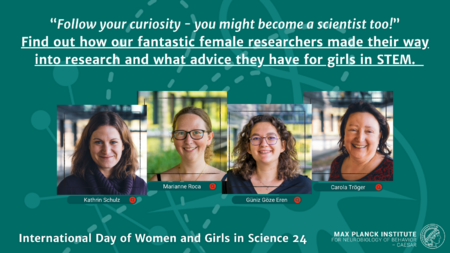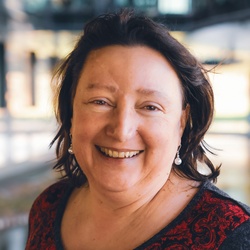Carola Tröger, engineer in our Microscopy Core Facility and Gender Equality Officer
I already liked STEM subjects at school. I trained as a chemical lab technician and went on to study chemical engineering. I wanted to do research that combines technology and science. I would like to see more women in engineering and my tip is not to let yourself be dissuaded from your goal, even if you are sometimes underestimated. The course for a career in science is already set at school.






